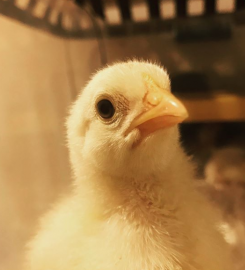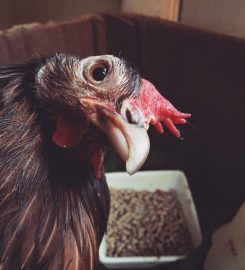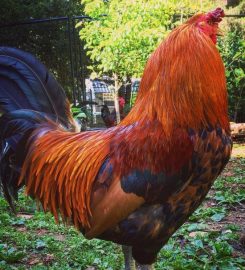Triangle Chicken Advocate | Sanctuary
Triangle Chicken Advocates’ mission is to rescue and provide sanctuary to chickens, educate the public about farmed animals in order to end their exploitation, and promote veganism and collective liberation for all beings.
Hen Sanctuary in North Carolina
What does Triangle Chance for All do, exactly?
Triangle Chicken Advocates’ mission is to rescue and provide sanctuary to chickens, educate the public about farmed animals in order to end their exploitation, and promote veganism and collective liberation for all beings.
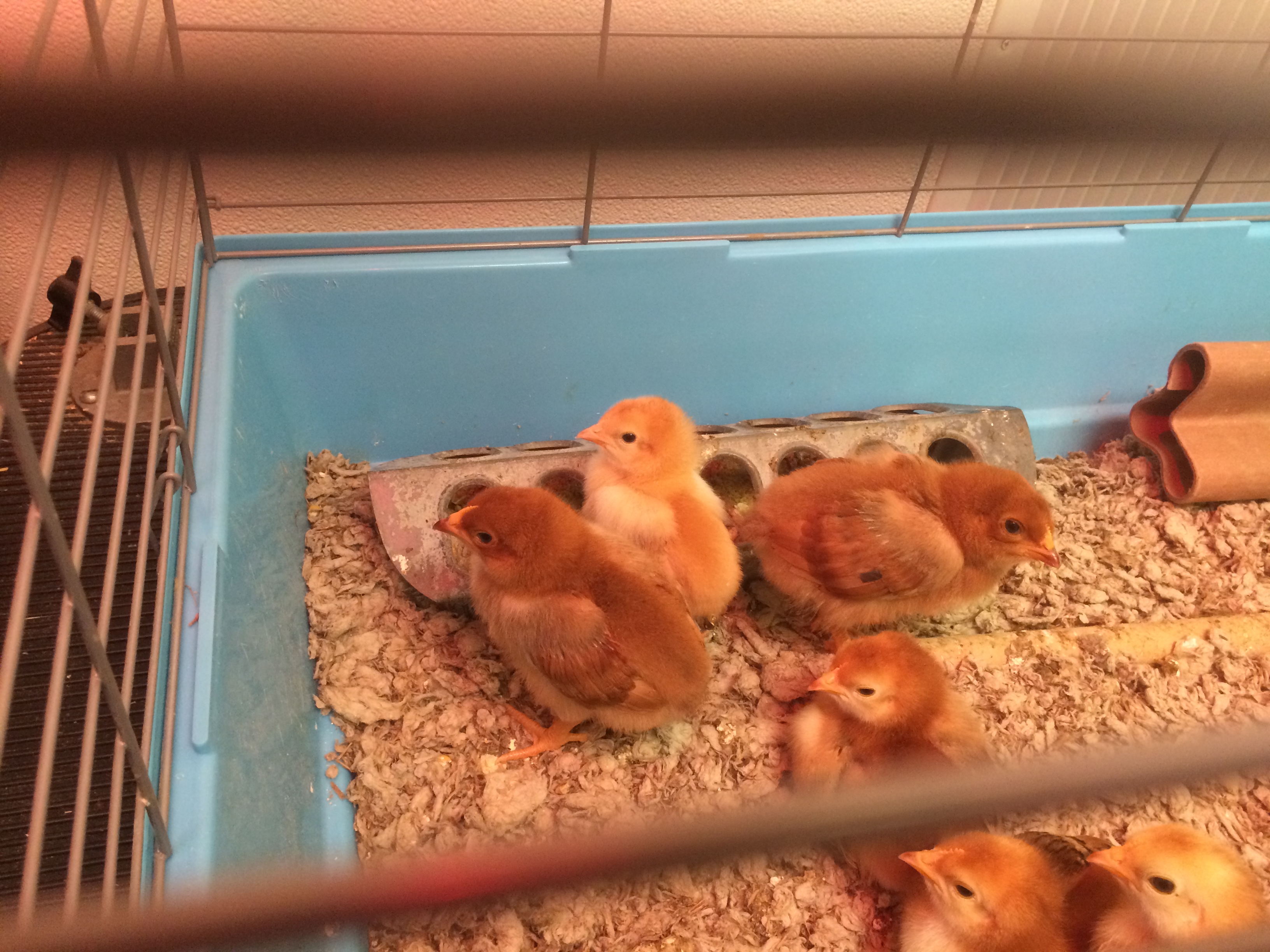
We strive to ensure that rescued animals will never again be used as commodities. Along with our animal rescue work, we also provide vegan education to the community in order to decrease the demand for animal products–and thus to decrease the number of farmed animals who are exploited.
Where do you work?
Our region of focus is the Triangle of North Carolina–Wake, Durham, and Orange counties–as well as the adjacent counties of Alamance, Caswell, Chatham, Franklin, Granville, Johnston, Harnett, Nash, and Person, and all cities therein.
What if an animal is not in one of the counties you listed?
We will help with situations outside of our focus region on a case-by-case basis.
Where do the animals you rescue come from?
County shelters and animal control services (including state-mandated county “livestock” auctions of individual animals) are the main places we rescue farmed animals from. These farmed animals have escaped from, or been let loose from, the agricultural system that profited from their exploitation.
We endeavor to help them stay out of that system and avoid being killed by animal control for lack of a place to go. We also will rescue and place animals listed on adoption sites (including Craigslist–which is a horror show of animal exploitation) in certain situations. Triangle Chance for All does not and will never purchase an animal from a for-profit livestock auction or pay a farmer to surrender their animal.
Do you take in owner surrenders?
On a case-by-case basis.
Where do the animals you rescue go?

We provide permanent shelter and care to some TCA rescues at our own microsanctuary, located on several acres in Chatham County. In cases where we cannot keep an animal under our care as a sanctuary Resident, we facilitate her or his placement in another sanctuary or a carefully screened adoptive home.
Do you eat them?
Absolutely not. Everyone in our organization is an ethical vegan and believes that animals should never be used for food or any other purpose to benefit humans. We would never eat a rescued animal, nor would we eat their milk or eggs or use their wool or feathers or fur for our own ends.
What about their eggs and milk? Do you sell or eat them?
Not only do we not eat any animals or products from the animals; we also do not sell their products. To sell, and thus to profit from, animals would be to perpetuate a system of violence and exploitation. It would also continue to normalize the consumption of animals. All of these are ethically wrong and directly contradict our core values and mission: to help individual farmed animals and to end their exploitation.
What do you do with those things, then?
Eggs are a nutritious and much-loved treat for the hens; indeed, feeding eggs back to the hens provides them with essential nutrients like calcium that help prevent egg binding and other serious health problems.
Since we do not breed animals, there is little opportunity for milk to be made by TCA Residents. If we did rescue a lactating animal, she would most likely be paired up with a nursing young animal.
In the case of sheep, who need to be sheared annually, or birds who lose feathers, we will place their wool/feathers in our ample woods for birds and other wildlife to use for building nests and other purposes. Alternatively, we can compost them.
Do you breed animals after you rescue them?
No. Breeding serves only to perpetuate exploitation by creating more domesticated animals. TCA will seek to spay/neuter all rescued animals, except in cases when the procedure would pose serious health risks or could otherwise be harmful for the animal.
In some cases, like roosters, the sterilization procedure is invasive and dangerous; chicken population control is easily done by collecting all eggs and feeding them back to the hens (though there are benefits to sterilizing hens). If an animal is not spayed/neutered, we would take precautions to insure no mating occurs or, for birds who cannot be sterilized, that all eggs are collected before they hatch.
Can I come visit the animals?
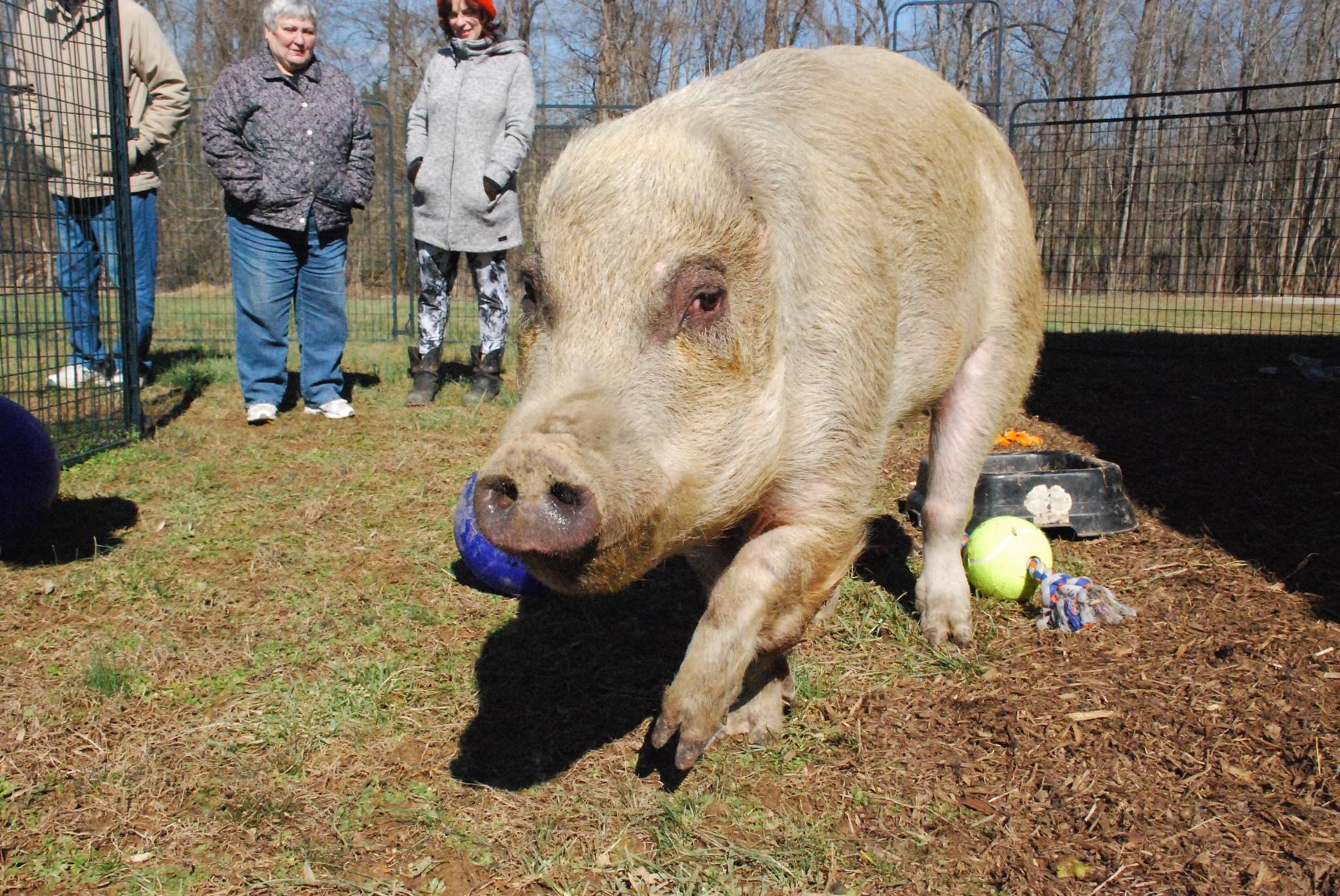
We do welcome visitors to our TCA Microsanctuary by appointment only or during scheduled special events like an open house or a volunteer day. Please contact us at trianglechanceforall@gmail.com or through our website to inquire about scheduling a private visit. While there is no fee for admission, we always appreciate donations.
Can I foster or adopt an animal from TCA?
We do not adopt out animals to the general public. However, we do place some rescued animals at other (vegan) sanctuaries when we are not able to accommodate them at our Microsanctuary.
Can I volunteer with TCA?
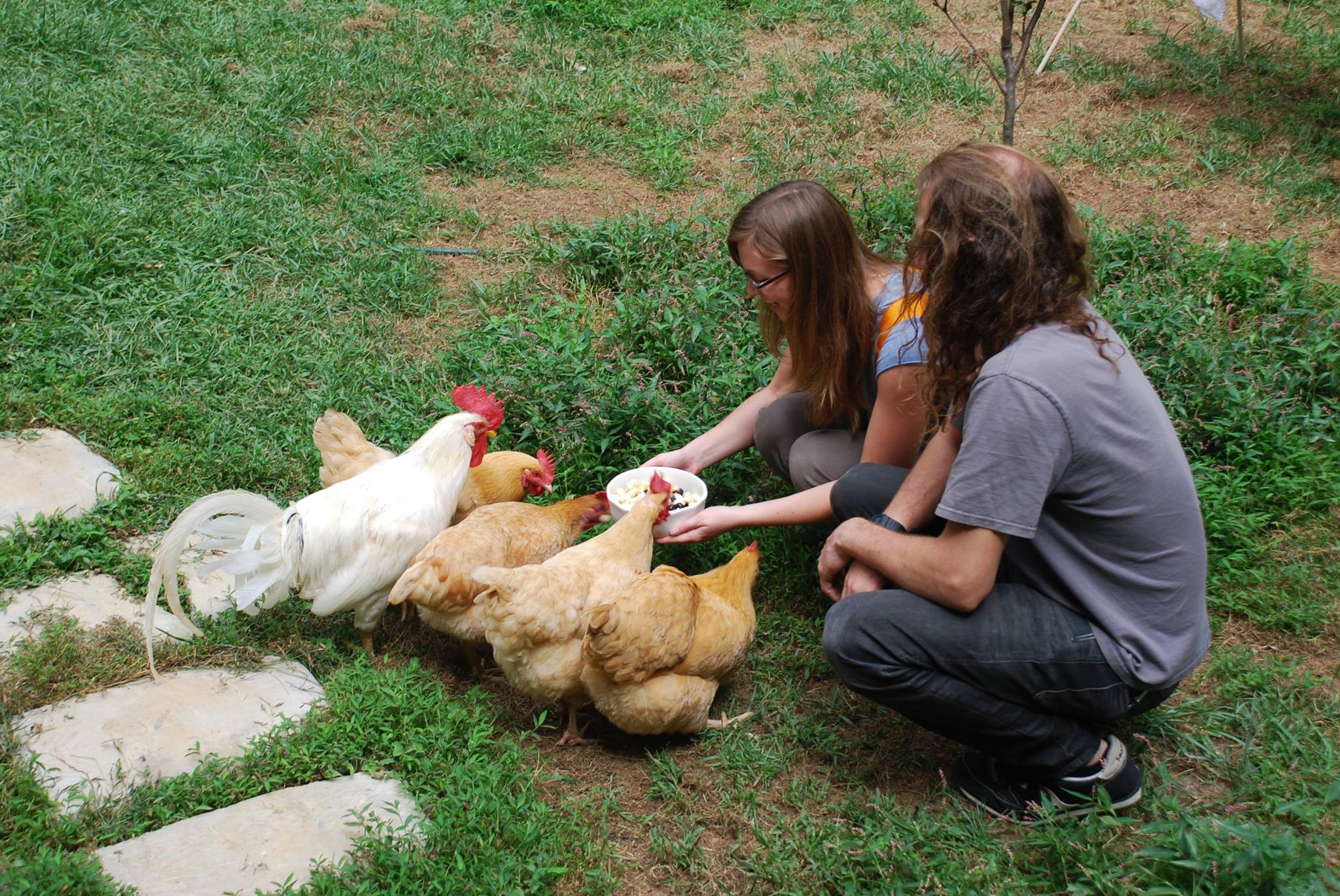
Yes! You can volunteer with us in a number of ways, including donating vegan baked goods and other vegan foods to our bake sales and events, assisting at events, and in some instances helping at the microsanctuary. Contact us to find out more about volunteer opportunities.
Where do you get your funding?
TCA relies in large part on the generosity of our local community, as well as supporters of farmed animals around the world. Through crowdfunding campaigns for specific rescues, making donations for food items at bake sales and other events, or general one-time and recurring donations, supporters of TCA play a huge role in sustaining our rescue efforts and our microsanctuary.
In addition to public support, we also seek out opportunities for grants and other funding that will help us further our mission.
Where does my money go if I donate?
We are a 100% volunteer organization, and we strive to keep administrative costs as low as humanly possible. This means that we put nearly all funding directly back into animal care (food, medical, shelter) and rescues, as well as vegan education.
How else can I support TCA?
Lots of ways! First and foremost, if you are not already vegan…go vegan! Going vegan is the best way to end your role in exploiting animals, which means you help reduce the need for TCA to rescue and care for farmed animals. Along with this compassionate lifestyle, financial donations, and volunteering, you can support TCA by: donating new or gently used items on our Wish List; being an active participant on and sharer of TCA’s Facebook page; and advocating for TCA and for farmed animals whenever you can.
Are you a 501(c)(3) organization?
Triangle Chance for All is a tax-exempt organization under IRS Code 501(c)(3), so your contribution may be tax deductible. Please check with your tax consultant for advice about your particular gift. Our tax ID # is: 46-5128341. We are also a registered non-profit corporation in the state of North Carolina, and have a solicitation license exemption on file with the North Carolina Department of the Secretary of State.
Why do you call yourselves a “vegan organization”?
Because our founders and Board of Directors are ethical vegans, we promote the treatment and consideration of animals based on vegan principles, and we educate the public on the value, impact, and how-to of a vegan lifestyle. Indeed, we see our efforts to provide rescue, sanctuary, and education–to non-human and to human animals–as putting our vegan principles into direct action.
What do you mean by “microsanctuary”? Aren’t you just an animal sanctuary?
Yes, TCA does have a small sanctuary for many of our rescued animals. We use the term “microsanctuary,” however, because our property (which is about three acres) is much smaller than typical farm sanctuaries and has many fewer residents, as well as a smaller budget and no paid staff. Shortly after forming TCA, we realized that relying only on placement for our rescues would greatly limit the number of animals we could help. We then decided that we could scale the model for typical large farm sanctuaries down and get creative with what we have, not what we think we need, in order to provide permanent shelter and care to our rescues.
Our microsanctuary starts from the premise that our space and our resources, though limited, are still sufficient for us to provide sanctuary to individual farmed animals in order to prevent them from ever again being used as commodities. We have also developed this microsanctuary concept into a larger movement, The Microsanctuary Movement, which will serve to inspire and support other people who are running (or want to run) their own microsanctuaries. To learn more about the microsanctuary concept and TCA’s microsanctuary, please read this article at Our Hen House: http://www.ourhenhouse.org/2014/06/the-sanctuary-in-your-backyard-a-new-model-for-rescuing-farmed-animals/.
Isn’t it okay to raise animals for food as long as they are treated humanely?
No. All use of animals, for whatever human ends, is wrong and exploitative. Whether those animals are on a factory farm or in someone’s backyard, in a medical laboratory or in a zoo, the treatment and living conditions of the animals change nothing about the inherent exploitation of the situation.
In the case of agriculture, so-called “humane” animal products entail many of the same practices that are used on large-scale industrial farms: for example, conducting procedures like castration, de-beaking, and disbudding of horns without anesthesia; premature slaughter of animals based on productivity and market value, not natural lifespan; withholding medical treatment because of costs and the low value of farmed animals; and transport to and “processing” in the same slaughterhouses used for factory-farmed animals.
But, to repeat, these methods of treatment and living conditions are not what determines whether using animals is right or wrong. They are only symptomatic of the underlying problem: that viewing animals as means to ends, as commodities, will always and inevitably create instances of exploitation. There is no escaping that.
Isn’t the real problem factory farming, not eating animals?
Factory farming simply takes to the extreme (and sickly logical) conclusion the underlying belief that non-human animals are human “property” (hence the word livestock) to be used for whatever purposes we deem acceptable and necessary. This means that, even if factory farming was stopped today, the exploitation of animals and their unnecessary suffering would continue, indefinitely, until humans stopped all forms of use.
Are you saying that farmers are cruel?
The issue is not whether individual humans are cruel. In many cases, humans inflict cruelty onto animals because those humans take pleasure in causing suffering. However, many other humans simply do not recognize the individuality of non-human animals or the wrongness of participating in a system of exploitation. Our primary goal is not to lambast individual or collective farmers, or specific or general “industry practices,” but instead to call attention to the overarching problem (the belief that humans “own” non-humans) that leads to all forms of cruelty and exploitation.
If everyone went vegan, wouldn’t that mean no more animals to rescue?
TCA does not exist for its own benefit. We are working towards the day in which there is no further need to rescue farmed animals and our organization can shut its doors. Again, our purpose is to provide what assistance we can to the individual victims of an exploitative system; it is not to insure our own existence indefinitely.
I’d like to go vegan. What can I do?
Great! There are countless resources available to new vegans and those in transition, from hundreds of vegan cookbooks published every year to the countless website and blogs dedicated to all aspects of vegan living. TCA is also here to help you go vegan! Our Go Vegan pages include delicious recipes and other information to help you go and stay vegan.
We also offer frequent events that will both feed you and educate you in many aspects of veganism. In addition, we will be offering a regular vegan mentorship program that includes in-person guidance and peer support, as well as virtual and in-person one-on-one support from some of our seasoned vegan Board members.
If you have additional questions, please reach out to us! We would like to hear from you!


